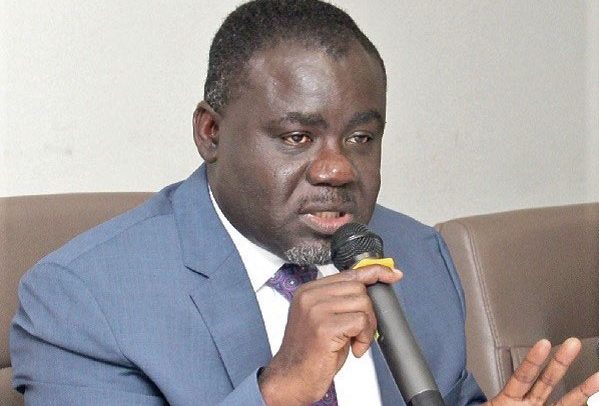Kwaku Ofori Asiamah
Feasibility study conducted by Ghana Ports and Harbours Authority (GPHA) has revealed that the first phase of construction of commercial port at Keta in the Volta Region is to cost about $600 million.
The first phase will consist of commercial gate with acess control and administration block, multiple purpose terminal with a berth length of 500 mm and RoRo Dock, oil terminal consisting of tank farm abd oil Jerry
It will also include Shipyard with dedicated basin for floating docks abs vessel maintainance, fishing port and related amenities, small craft services and access roads among others.
Speaking at a stakeholders’ engagement on the Keta Port Project in Accra on Thursday November 11, 2021, the Minister of Transport, Kweku Asiamah noted that the feasibility study conducted on the project is positive.
According to him, the study shows that the project is a very viable investment.
He however indicated that the project is highly capital intensive and government cannot bear it alone, calling on the private sector to partner government to make the project come to fruition.
“I want to emphasis that the involvement of the private sector is to bring the needed capital and efficiencies to the delivery of this project,” he added.
He mentioned that the construction of the Keta Port falls in the vision of President Nana Addo Dankwa Akufo-Addo to construct another commercial port for Ghana to accelerate development in the Volta Region and the country as a whole.
He explained there has been several works ongoing since government declared it intention to develop and build Keta Port including feasibility studies for the project which have been completed, completion of and furnishment of physical an office structure and fully equipped.
The Minister indicated that the Keta Port will be developed in phases per the feasibility studies subject to the forecasted traffic growth and potential business development.
For his part, Isaac Osei, Board Chairman of GPHA in his welcome address expressed his outfit seriousness about making sure the project come to be.
“This engagement is imperative because we believe your opinions, as stakeholders, matter.
“We have been given a job to do, and that job is to see to the development of the Port of Keta
“We take this mandate seriously because we know how important it is to Ghana and the West African Subregion, as a whole.”
Touching on the importance of the engagement, he noted that GPHA plan is to ensure that no interested party or stakeholder is left behind as they get into the other phases of the project,” hence our determination to ensure that your inputs are captured and incorporated into what we have.”
“In our collective determination to answer to the call by our government to ensure the coming into being of the Port of Keta project, support and collaboration is imperative.”
By Vincent Kubi


